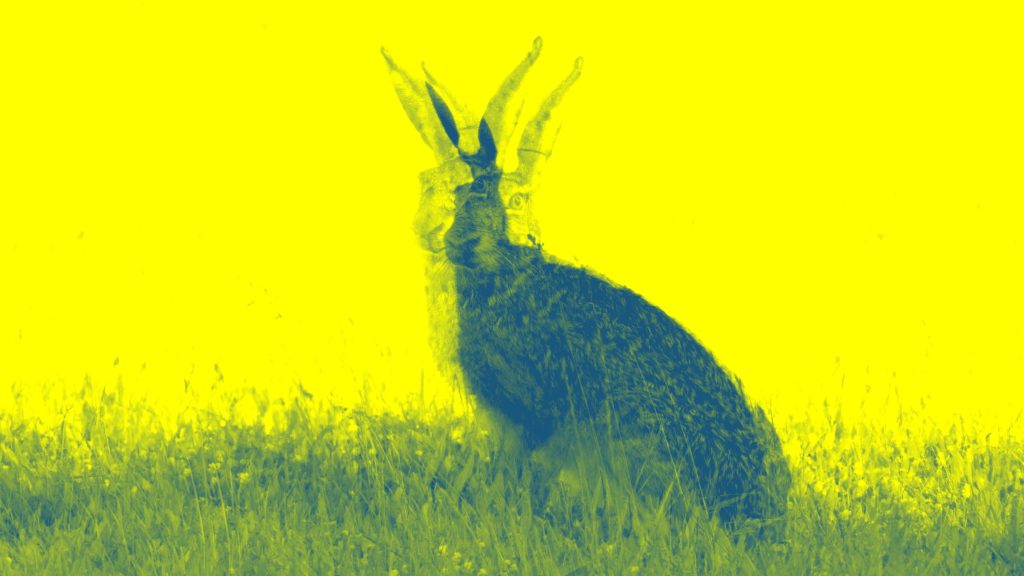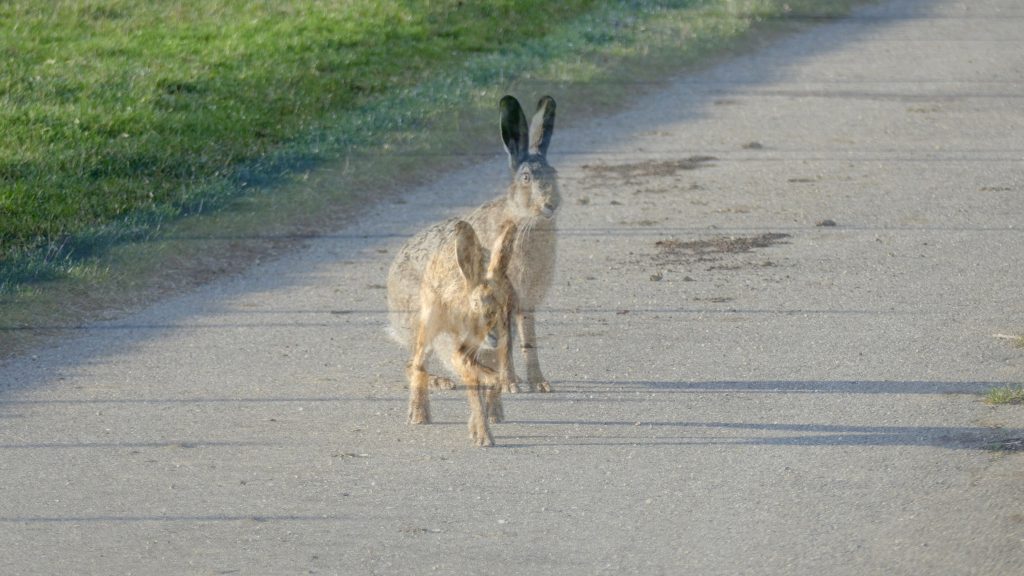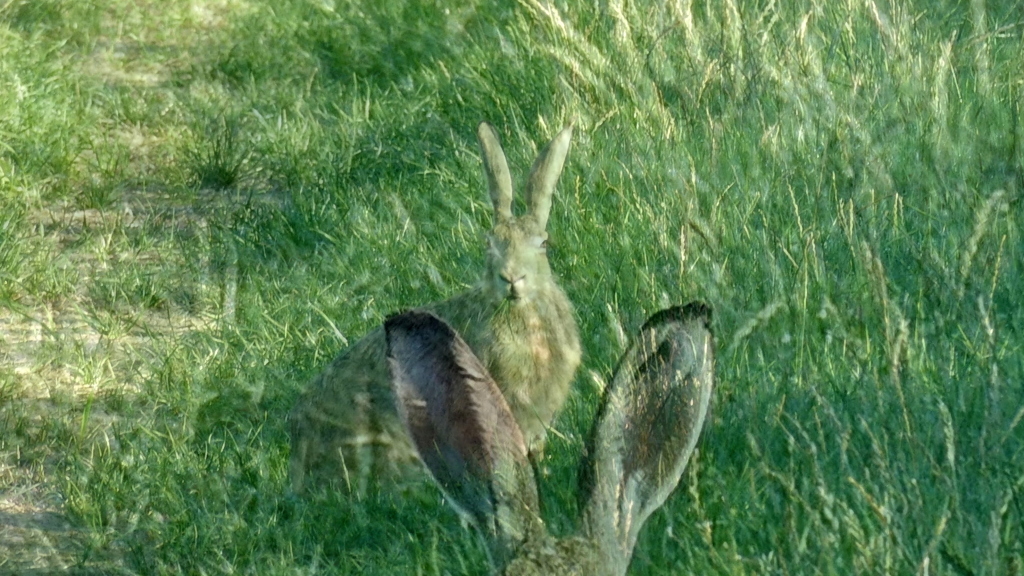The MAEL (Meeting At Eye Level) project began in 2023 and investigates encounters with wildlife. The idea for it emerged during walks through rural landscapes of Lower Austria that are characterised by vineyards and viticulture, where it is possible to encounter brown hares, red deer, wild rabbits, red squirrels, ground squirrels, polecats, blackbirds and other bird species. The research and practice of MAEL was inspired by those special moments of shared awareness that sometimes occur during these encounters.
One possible term for the relational quality of these moments is ‘resonance’. In Hartmut Rosa’s theory of resonance1, the concept of unavailability2 plays an important role. This corresponds to my experience: While I can create certain conditions to increase the likelihood of resonance, there is no immediate availability of it. The variables that turned out to foster its occurrence, are immobility on the outside, while on the inside, something is set in motion that can be described as ‘bows’ and a ‘dance on points’ – silent, gravity-defying movements that reduce the carnal threat by concentrating the body on a single point.
Methodologically, the challenge lies in capturing the relational figure that emerges from these encounters. One approach I am taking is to use techniques such as superimposition and collage based on photographs of the encounters to visualize moments of resonance. Another approach involves the application of poetic inquiry.
The MAEL project intends to establish a practical and theoretical research framework that can be shared and reproduced in the context of interactions with wildlife. Its objective is to generate new knowledge about how to relate to wildlife from a decolonial perspective. By exploring and fostering cross-species resonance, the MAEL project seeks to transform our way of relating to wildlife, aiming at a new kind of interspecies relationship — one based on encounters at eye level.




These are examples of visualizations of the relational figure based on the initial MAEL output.
- Rosa, Hartmut. 2016. Resonanz. Eine Soziologie der Weltbeziehung. Suhrkamp. ↩︎
- In English translations of Rosa’s works, ‘Unverfügbarkeit’ is generally translated as ‘uncontrollability’. However, in my opinion, this does not accurately convey the meaning of the German term. For this reason, I prefer to use ‘unavailability’. ↩︎
